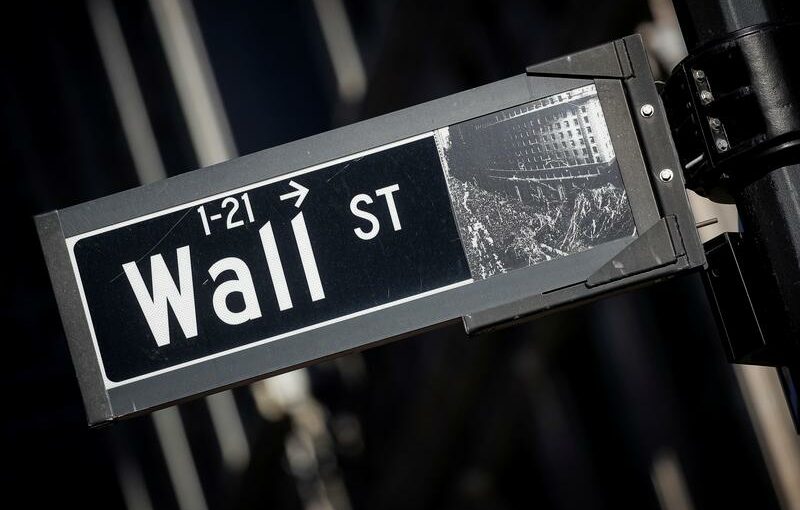LONDON/SYDNEY (Reuters) -Wall Street was tipped for a firmer open on Thursday after the German and French bourses rose to record highs despite big falls in energy stocks, while the day’s big loser was the Turkish lira following a 100 basis-point interest rate cut.
A pan-European equity index approached a record high, having risen 17 times over the past 10 sessions, thanks to a strong earnings season. Germany’s DAX, Switzerland’s SMI and France’s CAC 40 touched all-time highs.
“There’s a gradual creeping of money in to the European market,” said Graham Secker, European equity strategist at Morgan Stanley.
“As concerns through July, August and September about the U.S. and China slowdown and earnings season are starting to lift, that’s allowing equities to move higher,” he added.
Further gains were capped however by weakness in energy stocks that were hit by Brent crude futures slipping below $80 after the United States and China hinted they could tap their fuel reserves [O/R].
London’s commodity-heavy FTSE fell, with heavyweights Royal Dutch Shell and BP losing as much as 2%.
The dollar retreated from 16-month highs against a basket of currencies and U.S. Treasury yields flatlined, holding below recent three-week highs.
However, the dollar pullback offered little respite for emerging markets, with the Turkish lira in the spotlight.
The currency tumbled to record lows near 11 per dollar, after its central bank defied 20% inflation and a year-to-date lira fall of almost 30% to slash interest rates by another 100 basis points.
That comes on top of 300 bps in cuts in recent months, as the central bank responds to calls from President Tayyip Erdogan for lower borrowing costs.
Jason Tuvey, an economist at Capital Economics, said Turkey was running the risk of “a self-fulfilling cycle as its unwillingness to tighten policy prompts a further sell-off of Turkish assets, raising inflation expectations and further increasing demands for higher interest rates”.
“The experience from 2018 is that the currency could experience intra-day falls of more than 10%.”
The cost of insuring exposure to Turkish debt in the credit default swaps (CDS) market surged 11 basis points to 438 bps.
Attention turned to Wall Street, with S&P 500 futures up 0.3% and futures on the tech-heavy Nasdaq up more than 0.5%.
Shares fell on Wednesday after retail giant Target became the latest to warn that three-decade high U.S. inflation was putting pressure on profit margins. Housing data also showed a sector beset with shortages of labour and materials [.N]
There was no sign of Europe’s inflation pressures easing either as gas prices there consolidated a 60% November surge amid wrangling over the Nord Stream 2 pipeline.
The inflation linked 10-year Bund yield was just off a fresh record low while a market-based gauge of future inflation — the five-year, five-year forward inflation gauge — hovered just under 2%. [GVD/EUR]
Hinting at division among European Central Bank policymakers, board member Isabel Schnabel said on Wednesday that the central bank must be ready to rein in inflation if it proves to be more stubborn than expected.
Earlier in Asia, Japan’s Nikkei ended down 0.3%. [.T] while a 5% fall in China’s Alibaba took the Hong Kong tech index sharply lower. [.HK]
Elsewhere, the euro, which on Wednesday touched a 16-month low below $1.13, rose 0.2% to $1.1345.
The dollar index, which measures the currency against a basket of six rivals, reached its highest since mid-July 2020 on Wednesday at 96.226, but was last down 0.2% at 95.654. [FRX/]
Source: Read Full Article
